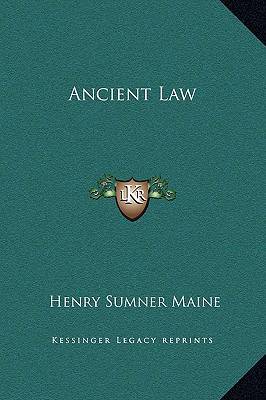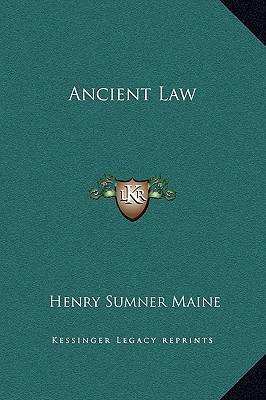
- Retrait gratuit dans votre magasin Club
- 7.000.000 titres dans notre catalogue
- Payer en toute sécurité
- Toujours un magasin près de chez vous
- Retrait gratuit dans votre magasin Club
- 7.000.0000 titres dans notre catalogue
- Payer en toute sécurité
- Toujours un magasin près de chez vous
Description
Ancient Law is a book written by Henry Sumner Maine, first published in 1861. It is a seminal work in the field of comparative law and anthropology, exploring the evolution of legal systems from primitive societies to modern times. Maine argues that ancient law was based on customs and traditions, which were enforced by the community rather than by a centralized authority. He also discusses the role of religion in shaping legal systems and the transition from status-based to contract-based societies. The book is divided into three parts: the first part examines the characteristics of primitive societies and their legal systems, the second part focuses on the transition to modern legal systems, and the third part discusses the impact of ancient law on contemporary legal systems. Maine's work was influential in the development of legal anthropology and comparative law, and it remains a classic in the field.It will be inferred from what has been said that the theory which transformed the Roman jurisprudence had no claim to philosophical precision. It involved, in fact, one of those ""mixed modes of thought"" which are now acknowledged to have characterised all but the highest minds during the infancy of speculation, and which are far from undiscoverable even in the mental efforts of our own day.This scarce antiquarian book is a facsimile reprint of the old original and may contain some imperfections such as library marks and notations. Because we believe this work is culturally important, we have made it available as part of our commitment for protecting, preserving, and promoting the world's literature in affordable, high quality, modern editions, that are true to their original work.
Spécifications
Parties prenantes
- Auteur(s) :
- Editeur:
Contenu
- Nombre de pages :
- 192
- Langue:
- Anglais
Caractéristiques
- EAN:
- 9781169282308
- Date de parution :
- 10-09-10
- Format:
- Livre relié
- Format numérique:
- Genaaid
- Dimensions :
- 178 mm x 254 mm
- Poids :
- 553 g

Les avis
Nous publions uniquement les avis qui respectent les conditions requises. Consultez nos conditions pour les avis.






